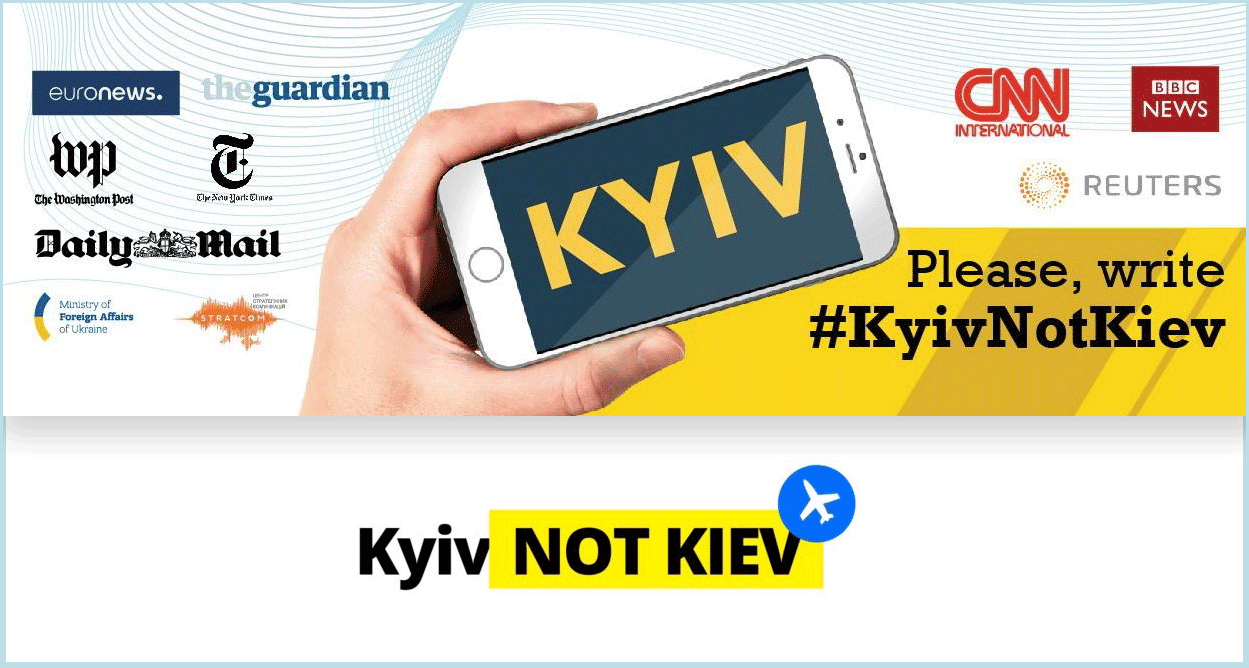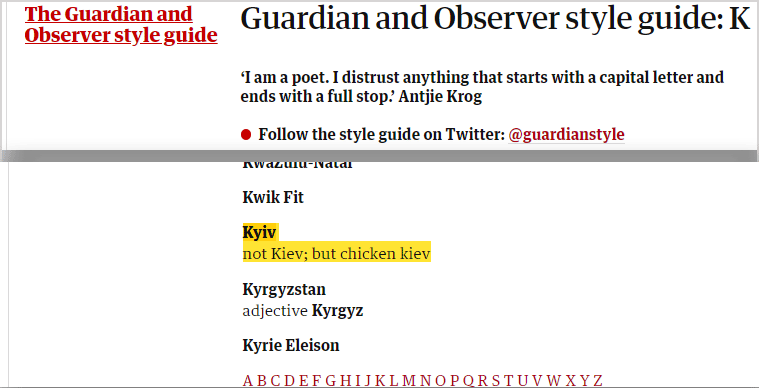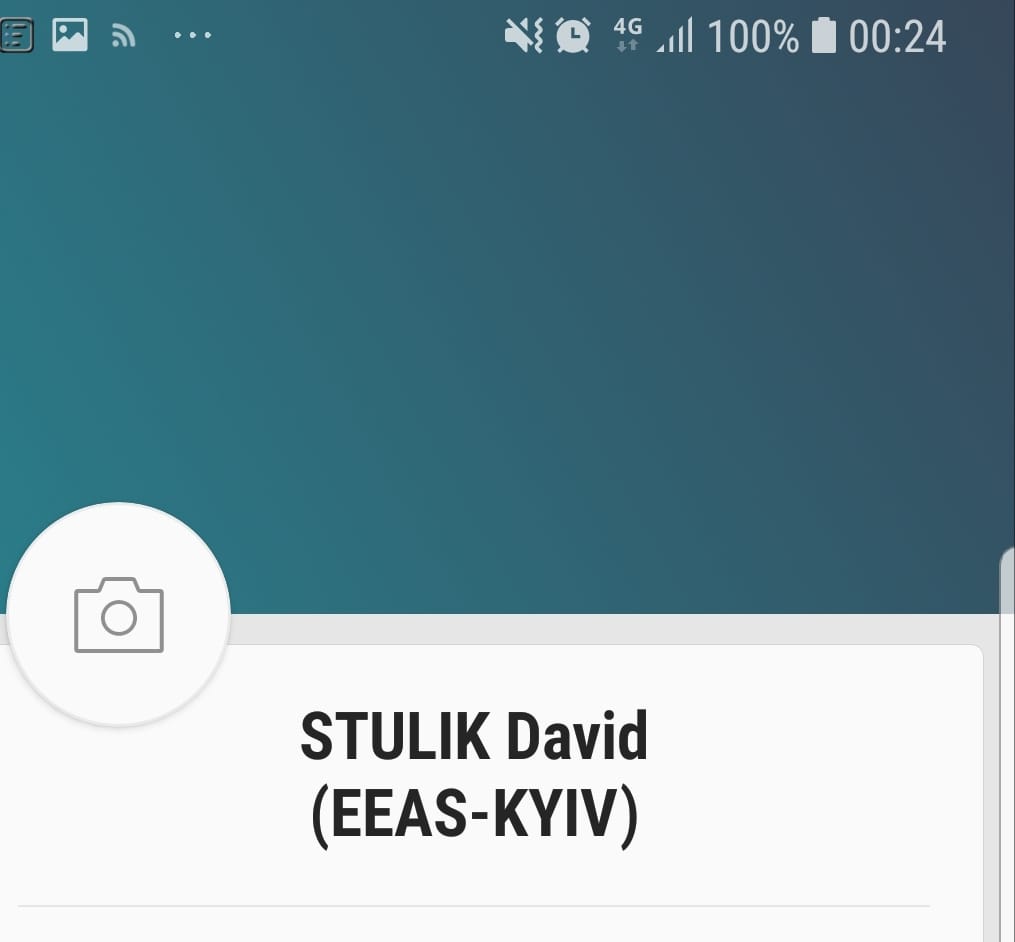Isn’t the spelling Kiev just historical like Prague instead of the Czech version Praha or Warsaw instead of Polish Warszawa or Rome for Italian Roma? Not in the Kyiv-Kiev case.
On 13 February, International London Luton Airport informed the Ukrainian Embassy in London that WizzAir airline started using the Ukrainian spelling Kyiv for the Ukrainian capital instead of the previously used Russian-transliterated version Kiev.
The Guardian newspaper has also updated its style guide adding the Ukrainian capital’s name Kyiv as the correct spelling. And Press Officer of the EU Delegation to Ukraine, David Stulik told that the European Union’s diplomatic service (European External Action Service, EEAS) has finally changed Kiev to Kyiv in its email addresses.
As well, the Tallinn and Budapest airports are using Kyiv as well.


The Ministry of Foreign Affairs of Ukraine together with the Center for Strategic Communications StratCom Ukraine launched the online campaign #CorrectUA on 2 October 2018 to encourage Ukrainians to call on English-language international media to use spellings for geographical names transliterated from the Ukrainian language rather than Russian.
One of the spellings, international recognition of which the Foreign Ministry champions, is Kyiv, the romanized Ukrainian name of the country’s capital. The hashtag #KyivNotKiev is used to sign the requests to correct the corresponding spelling.
Read more on the campaign: Ukraine’s MFA calls on international media to use #KyivNotKiev
Russian colonial names
The Russian-style spelling, Kiev, came to English in the early 19th century in the tsarist times when Ukraine was part of the Russian Empire, later the same spelling was used internationally when Ukraine remained under the rule of the quasi-imperial Soviet state.
Thus, the Russian language remained only intermediary to other languages to convey the local geographical names of the nations colonized by the empire. That’s how the Romanian city of Chișinău became Kishinev, the Kazakh city of Aktobe turned into Aktyubinsk, and the Ukrainian capital city of Kyiv came to be known as Kiev.
Moreover, under the Soviet rule, Ukraine itself was spelled in English with a definite article, the Ukraine, referring to the nation as simply to a geographic area, part of the Soviet state.
Modern Russia got rid of using “the Ukraine” back in the 1990s, but the city names were not the case.
In the English versions of its official documents, the Kremlin keeps consistently using the Russian-style spelling for most of the geographical names in the territories of the post-Soviet countries to stress its aspirations to restore the collapsed empire or at least to mark the certain territories as the ones Russia desires to keep in its orbit of influence. In the Ukrainian case, such “anchors” are “Kiev“, “Lugansk“, “Lvov“, “Odesa” and so on.
In Ukraine, Kyiv became the official spelling for the country’s capital in October 1995. The Ukrainian name of the Ukrainian capital is used by the United Nations, European Union, US Government, English-speaking diplomatic missions, and some media.
However, the romanized Russian version, Kiev, is still widely used by the major English-language press sources such as the New York Times and BBC. Moreover, some newspapers, like the British tabloid Daily Mail, are still using the Soviet-era spelling “the Ukraine” for the country itself.
1. Larnaka International Airport and Pafos International Airport (Cyprus) – 17.10.2018
2. Athens International Airport Eleftherios Venizelos (Greece) – 12.11.2018
3. Warsaw Chopin Airport (Poland) – 12.12.2018
4. Gdansk Lech Walesa Airport (Poland) – 23.01.2019
5. Warsaw Modlin Airport (Poland) – 14.02.2019
6. London Luton Airport (United Kingdom) – 13.02.2019
7. Tallinn Lennart Meri Airport (Estonia) – 13.02.2019
8. Budapest Ferenc Liszt International Airport (Hungary) – 12.02.2019
9. Vilnius Airport (Lithuania) – 06.03.2019
10. Kaunas International Airport (Lithuania) – 06.03.2019
11. Palanga International Airport (Lithuania) – 06.03.2019
12. Beirut–Rafic Hariri International Airport (Lebanon) – 12.03.2019
13. Istanbul Ataturk International Airport (Türkiye) – 20.03.2019
14. Bucharest Henri Coandă International Airport (Romania) – 20.03.2019
15. Tbilisi International Airport (Georgia) – 21.03.2019
16. Alexander Kartveli Batumi International Airport (Georgia) – 21.03.2019
17. Toronto Pearson International Airport (Canada) – 27.03.2019







